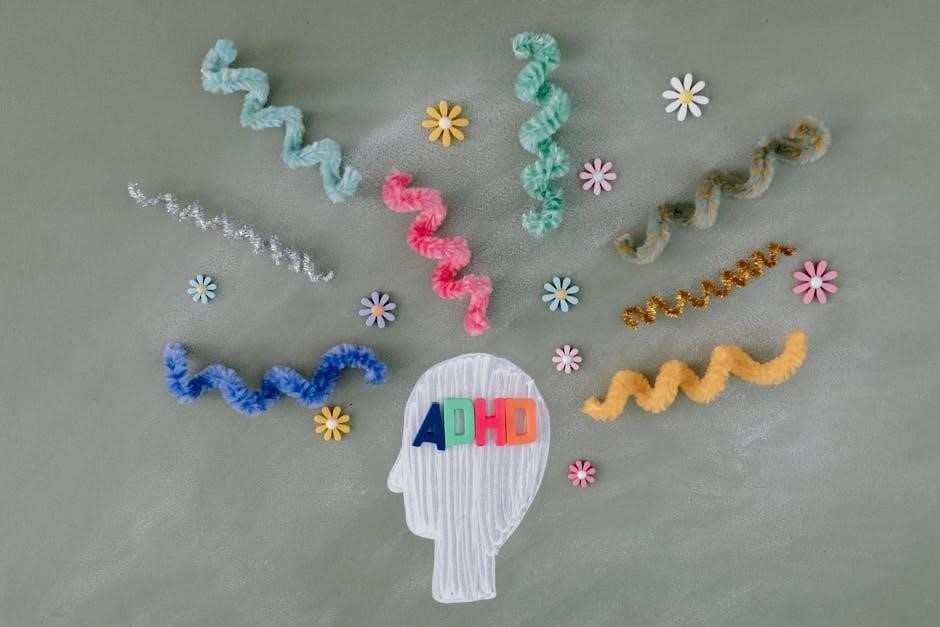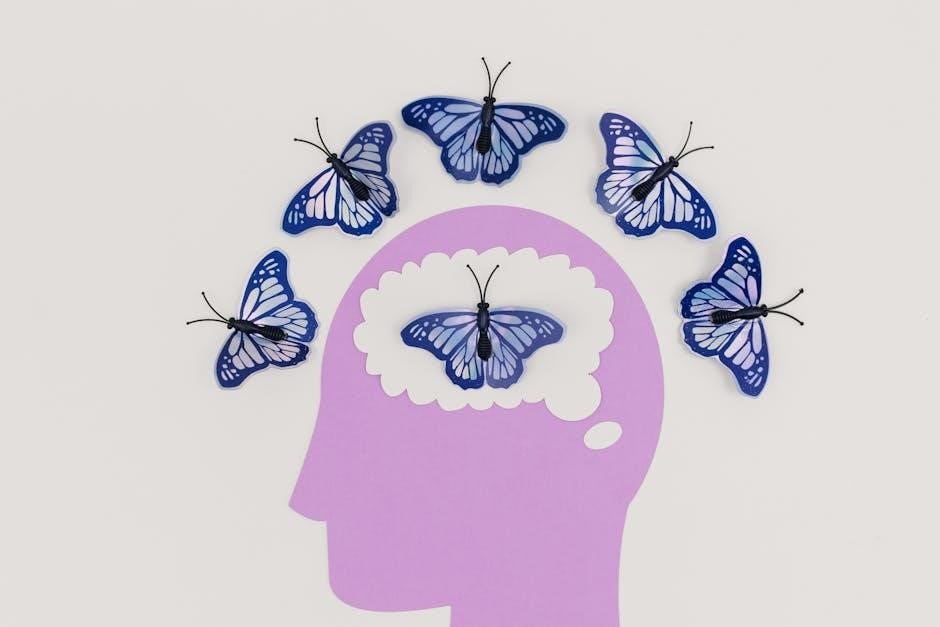
Ngũgĩ wa Thiong’o’s Decolonising the Mind introduces the politics of language in African literature, advocating for linguistic decolonization and cultural liberation through indigenous languages.
1.1. Overview of the Book
Decolonising the Mind: The Politics of Language in African Literature is a seminal work by Ngũgĩ wa Thiong’o, first published in 1986. The book is a collection of essays that critically examine the role of language in shaping cultural identity, history, and national consciousness. Ngũgĩ argues for linguistic decolonization, asserting that African literature should prioritize indigenous languages over colonial ones to reclaim cultural authenticity and resist imperial legacies. He advocates for the revival of African languages as a means of fostering self-awareness and liberation. The book is dedicated to those who have maintained the dignity of African languages and cultures, emphasizing their importance in postcolonial societies. It remains a cornerstone of postcolonial theory and a powerful call to action for linguistic and cultural empowerment.
1.2. Importance of Linguistic Decolonization
Linguistic decolonization is crucial for reclaiming African cultural identity and breaking free from the mental shackles of colonialism. Ngũgĩ wa Thiong’o argues that the continued use of European languages in African literature perpetuates cultural alienation and mental colonization. By prioritizing indigenous languages, Africans can reconnect with their historical and cultural roots, fostering authenticity and self-expression. This process is essential for decolonization, as language shapes thought, identity, and perception. Indigenous languages carry the wisdom, values, and experiences of African communities, making them vital for genuine liberation and cultural revival. Thiong’o emphasizes that linguistic decolonization is not just about language but about reclaiming African humanity and dignity in a postcolonial world.

The Author: Ngũgĩ wa Thiong’o
Ngũgĩ wa Thiong’o, born 1938 in Kamiriithu, Kenya, is a renowned author and academic. His work critiques colonialism and advocates for cultural revival through indigenous languages.
2.1. Background and Biography
Ngũgĩ wa Thiong’o, born James Ngugi in 1938 in Kamiriithu, Kenya, is a prominent African writer and scholar. He hails from a Gikuyu-speaking community, which deeply influences his work. Ngũgĩ initially wrote in English but later transitioned to Gikuyu, reflecting his commitment to linguistic decolonization. He studied English Literature at Makerere University and later earned a degree from Leeds University. His experiences with colonial education and cultural erasure shaped his advocacy for indigenous languages. Ngũgĩ’s activism led to his imprisonment in 1977 for co-authoring a critical play in Gikuyu. He now resides in the U.S., where he continues to champion decolonial thought as a Distinguished Professor at UC Irvine.
2.2. Literary Contributions and Activism
Ngũgĩ wa Thiong’o is renowned for his groundbreaking literary works and activism. His novels, such as Devil on the Cross and Matigari, written in Gikuyu, challenge colonial norms and celebrate African culture. In Decolonising the Mind, he critiques the dominance of European languages in African literature, advocating for indigenous languages as vehicles of cultural identity. Ngũgĩ’s activism extends beyond writing; he has been a vocal advocate for linguistic rights and cultural decolonization. His work has inspired scholars and writers globally, reshaping postcolonial discourse. As a public intellectual, he continues to lecture and write, emphasizing the importance of reclaiming African languages and histories. His contributions have solidified his legacy as a pioneer in decolonial thought and African literature.

The Book’s Main Arguments
Decolonising the Mind argues that African literature must reject European linguistic domination to reclaim cultural identity. Ngũgĩ advocates for indigenous languages as authentic vessels of African thought and history, asserting that colonial languages perpetuate mental colonization. He critiques the imposition of foreign languages in education and literature, emphasizing the need to decolonize African minds by reviving local languages and cultural frameworks. The book calls for a radical shift in how Africans perceive themselves and their heritage, free from colonial influences.
3.1. The Politics of Language in African Literature
In Decolonising the Mind, Ngũgĩ wa Thiong’o examines the profound impact of language on African literature and identity. He argues that the imposition of European languages during colonialism erased indigenous voices and marginalized African cultures. The book critiques the dominance of English, French, and Portuguese in African literary production, asserting that these languages perpetuate cultural alienation. Ngũgĩ advocates for the use of African languages to reclaim cultural authenticity and resist neocolonialism. He emphasizes that language is not neutral but a tool of power, shaped by historical and political contexts. By prioritizing indigenous languages, African writers can decolonize their minds and produce literature rooted in their own cultures and experiences, fostering true liberation and self-expression.

The Role of Language
Language shapes culture, identity, and power dynamics, acting as both a tool of oppression and liberation. It influences thought, perception, and the transmission of cultural values, requiring careful examination.
4.1. European Languages in African Literature
European languages, imposed during colonialism, have historically dominated African literature, often marginalizing indigenous voices. This linguistic hegemony has led to a complex relationship where African writers must navigate between their native tongues and the global reach of English, French, or Portuguese. Ngũgĩ wa Thiong’o critiques this dominance, arguing that it perpetuates cultural alienation and undermines local traditions. The use of European languages in African literature reflects the legacy of colonial education systems, which prioritized foreign tongues over native ones. While these languages provide a global platform, they also create a disconnect from the cultural and linguistic heritage of African communities, raising questions about authenticity and representation in postcolonial contexts;
4.2. The Revival of Indigenous Languages
The revival of indigenous languages is a critical step in decolonising the mind, as argued by Ngũgĩ wa Thiong’o. African languages, suppressed during colonial rule, hold the power to reclaim cultural identity and challenge Eurocentric dominance. Thiong’o advocates for writing in native tongues, emphasizing their richness and relevance in contemporary contexts. This revival fosters authenticity and connects writers to their cultural roots, enabling a more nuanced expression of African experiences. However, challenges persist, including limited resources and the global preference for European languages. Despite these obstacles, the resurgence of indigenous languages in literature and education signifies a resistance to colonial legacies and a reclaiming of linguistic and cultural sovereignty.

Cultural Aspects
Cultural aspects highlight how colonialism imposed foreign values, marginalizing indigenous practices and disrupting African cultural frameworks. This imposition led to a disconnection from traditional values and heritage, fostering cultural alienation and identity crises.
5.1. Language and Identity in African Cultures
Language plays a central role in shaping identity, as it carries the history, beliefs, and values of a culture. In African cultures, indigenous languages are not just means of communication but repositories of collective memory and wisdom. The imposition of European languages during colonization disrupted this connection, leading to cultural alienation. Ngũgĩ argues that using foreign languages divorces Africans from their cultural roots, fostering a fragmented identity. Reviving indigenous languages is thus essential for reclaiming cultural authenticity and pride. Language, in this context, becomes a tool for both cultural preservation and resistance against colonial legacies. It restores the dignity of African cultures and reaffirms their unique worldviews.

The Impact of Colonialism
Colonialism disrupted African societies, imposing foreign systems that erased indigenous cultures, exploited resources, and entrenched social inequalities, leaving lasting scars on identity, economy, and governance structures.
6.1. Effects on Language and Culture
Colonialism profoundly altered African languages and cultures, imposing European tongues as dominant while marginalizing indigenous ones. This linguistic shift led to cultural alienation, as local traditions and histories were erased or suppressed. The imposition of foreign languages disrupted communal identity, creating a disconnect between generations and undermining cultural coherence.
The devaluation of African languages perpetuated mental colonization, fostering a mindset that equated Western norms with superiority. This erasure of linguistic diversity not only diminished cultural richness but also hindered the preservation of African knowledge systems. The long-term impact has been a fragmented cultural landscape, where reclaiming indigenous languages and traditions remains a challenge for postcolonial societies striving to decolonize their minds and reclaim their heritage. The effects of this linguistic and cultural subjugation persist, shaping contemporary struggles for identity and self-determination.

Education
Colonial education systems were designed to impose European languages and values, alienating Africans from their indigenous cultures and perpetuating linguistic and cultural domination effectively;
7.1. The Legacy of Colonial Education Systems
Colonial education systems were explicitly designed to erase African cultures and impose European languages, creating a dependency on colonial structures. These systems devalued indigenous knowledge, promoting foreign languages and frameworks that alienated Africans from their heritage. The education imparted was not merely academic but ideological, fostering a mindset that privileged Western epistemologies over local traditions. This legacy persists in post-independence nations, where educational curricula often retain colonial biases, marginalizing indigenous languages and histories. The book critiques how such systems perpetuated mental colonization, undermining African identity and creativity. Resistance to these structures is essential for decolonization, requiring a radical overhaul of education to reclaim and valorize African perspectives and languages.
Themes and Concepts
Explores language’s role in oppression and liberation, emphasizing mental decolonization, cultural identity, and resistance to colonialism’s enduring impact on African societies and consciousness.
8.1. Language as a Tool of Oppression and Liberation
Ngũgĩ explores how language serves as both a tool of oppression and liberation. Colonial powers imposed European languages to marginalize indigenous cultures, erasing African identities. However, language also empowers resistance, as reclaiming native tongues fosters cultural renewal and mental decolonization. The book highlights the tension between linguistic domination and the liberatory potential of indigenous languages, advocating for their revival to challenge colonial legacies and reclaim African agency. This duality underscores the central role of language in shaping power dynamics and cultural identity, emphasizing its transformative power in postcolonial contexts.

Influence on Postcolonial Studies
Ngũgĩ wa Thiong’o’s “Decolonising the Mind” has profoundly influenced postcolonial studies by challenging the dominance of European languages in African literature. His argument that language is a tool of both oppression and liberation has reshaped scholarly discourse, emphasizing the need to reclaim indigenous languages. This idea has inspired researchers to explore the intersection of language, culture, and power, fostering new perspectives on colonialism’s legacy. His work has also encouraged a reevaluation of literary canons, promoting a more inclusive approach that values diverse voices. As a result, Ngũgĩ’s theories have become foundational in postcolonial scholarship, guiding studies on identity, cultural resistance, and linguistic decolonization.

Legacy and Impact
Ngũgĩ wa Thiong’o’s Decolonising the Mind has left an indelible mark on African literature and global intellectual discourse. By advocating for the use of indigenous languages, the book inspired a generation of writers to reclaim their cultural heritage. Its critique of colonial education systems has influenced educational reforms, promoting mother-tongue instruction. The text has also spurred movements for linguistic diversity, challenging the hegemony of European languages. Its impact extends beyond academia, shaping cultural policies and fostering pride in African identities. Today, the book remains a cornerstone of postcolonial thought, continuing to inspire decolonial movements worldwide. Its legacy lies in its ability to empower communities to reclaim their voices and histories.

Personal Anecdotes
Ngũgĩ wa Thiong’o’s imprisonment for writing a Gikuyu play highlighted his commitment to linguistic decolonization, deeply influencing his advocacy for indigenous languages and cultural identity.
11.1. The Author’s Experiences and Insights
Ngũgĩ wa Thiong’o’s personal journey reflects his deep commitment to decolonization. Born in Kenya under British colonial rule, he experienced firsthand the erasure of indigenous cultures. His education in colonial schools, where African languages were suppressed, shaped his understanding of language as a tool of oppression. Later, his decision to write in Gikuyu, his native language, was a bold act of resistance. Imprisoned for his play Ngaahika Ndeenda, which challenged colonial norms, Ngũgĩ emerged more determined to advocate for linguistic freedom. His memoirs and essays reveal his belief that decolonizing the mind begins with reclaiming one’s language and cultural identity.
In Decolonising the Mind, Ngũgĩ wa Thiong’o delivers a powerful critique of colonialism’s linguistic and cultural impact. He argues that language is a vital tool for reclaiming identity and resisting oppression. By advocating for the revival of indigenous languages, Ngũgĩ challenges the dominance of European languages in African literature and education. His work emphasizes the need to decolonize mental frameworks shaped by colonialism. The book remains a foundational text in postcolonial studies, inspiring ongoing discussions about cultural restoration and linguistic freedom. Ngũgĩ’s call for African writers to embrace their native languages continues to resonate, urging a reconnection with ancestral heritage. His insights underscore the enduring relevance of decolonization in fostering cultural autonomy and intellectual liberation.